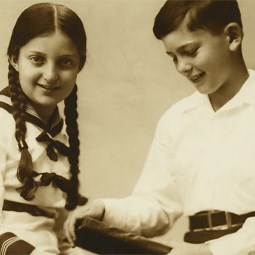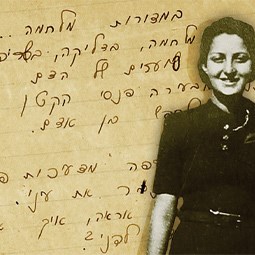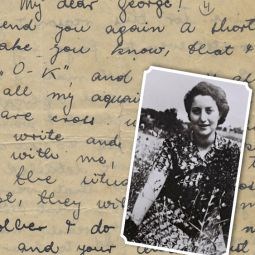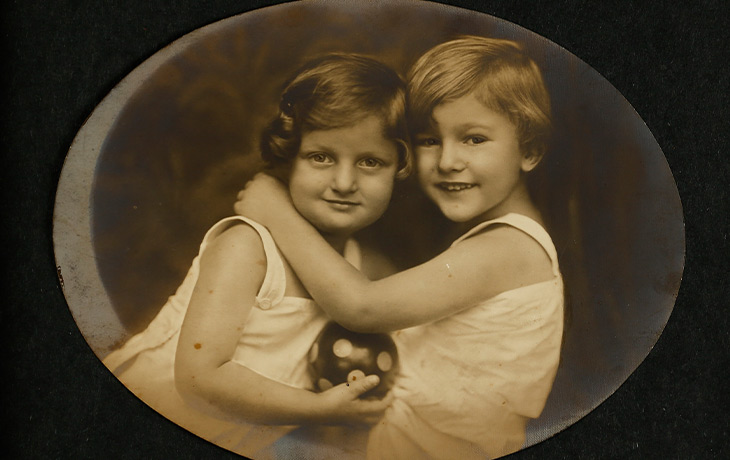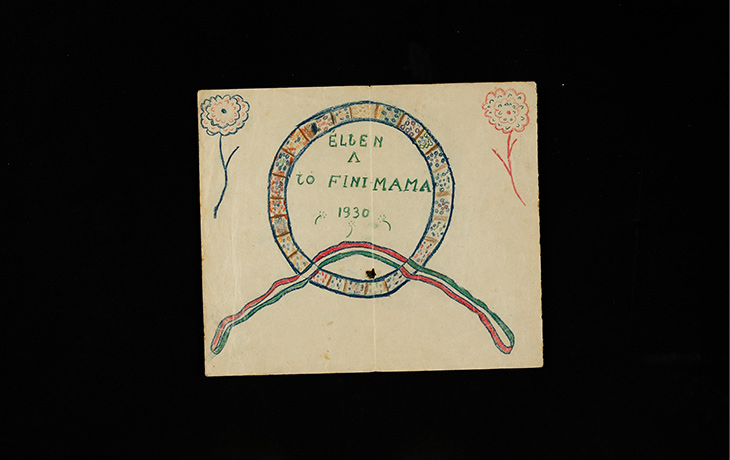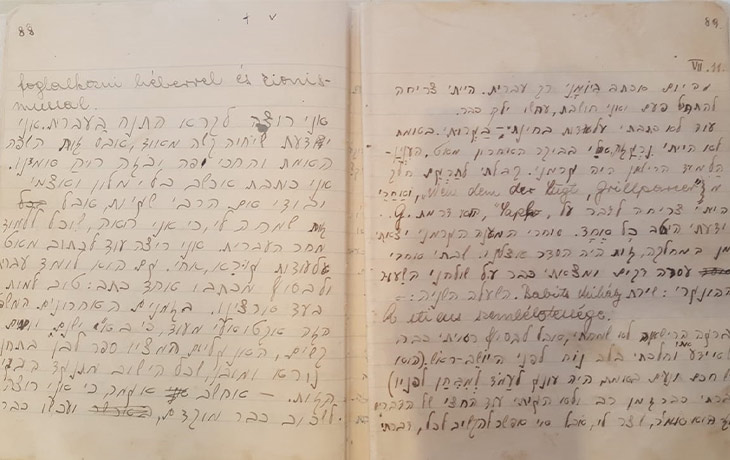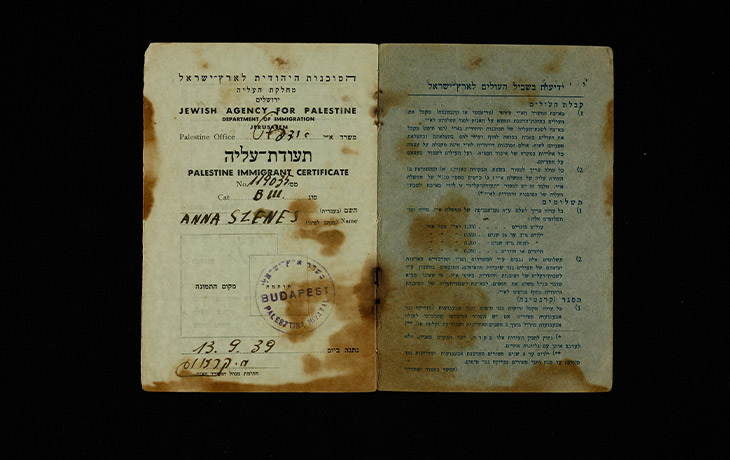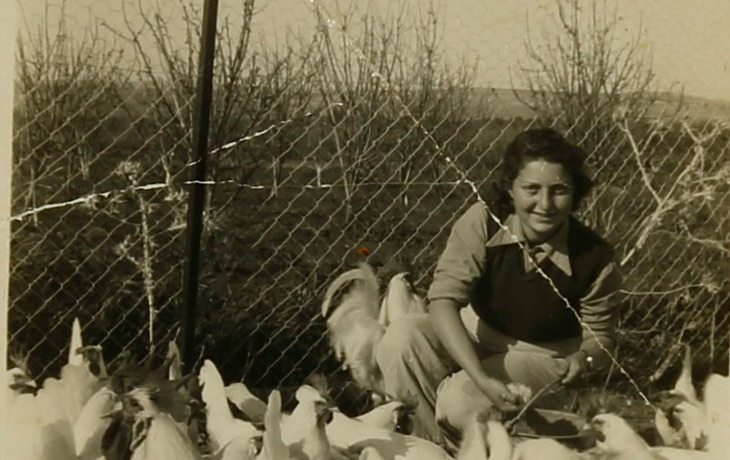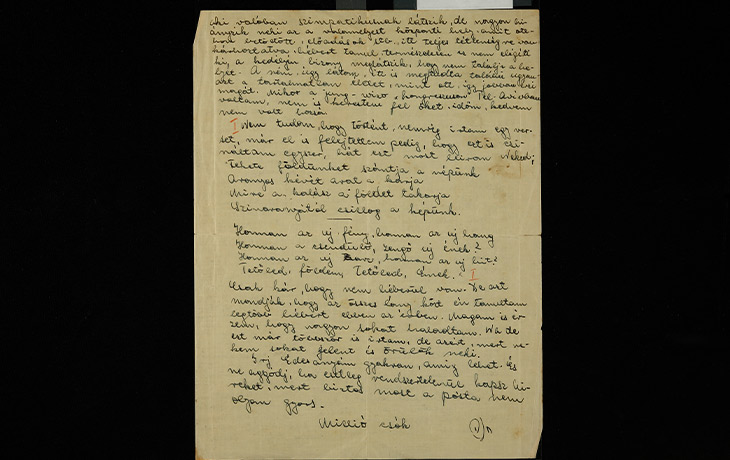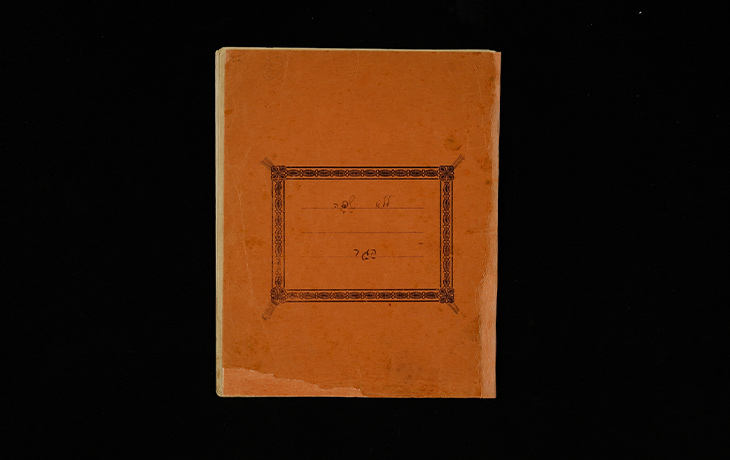Collection includes: diaries, family correspondence
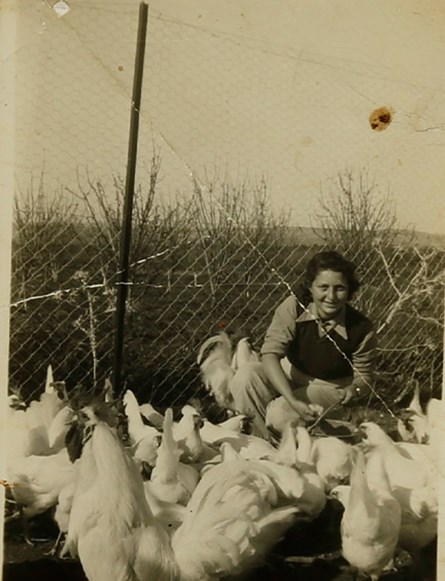
Hannah Senesh with chickens in Nahalal
In 1944, the Jewish paratrooper Hannah Senesh (Szenes) was parachuted into occupied Europe by the British, in a desperate attempt to save Hungarian Jews from the Nazi death camps. Captured, tortured and executed shortly thereafter, her story and her poems – including "A Walk to Caesarea" (known popularly as "Eli, Eli" / "O Lord, My God") – have made Senesh into an iconic figure of modern Jewish, Israeli and Zionist culture.
A year after her execution, a soldier in the British Army's Jewish Brigade named Moshe Braslavski returned to Kibbutz Sdot Yam in Mandatory Palestine where he found a suitcase full of previously unknown letters, diaries, songs, poems and more under Senesh's bed. This discovery and the subsequent publication of some of her work is what made Senesh's literary contributions known to the world.
After the war, her mother Katherine came to Mandatory Palestine, bringing with her more of Hannah's writings and personal items, which had been kept in their home in Budapest. Katherine received the materials from the kibbutz, and she kept the complete archival collection in her apartment in Haifa. Following Katherine's death in 1992 and the death of Hannah's brother Giora in 1995, the materials were passed down to Giora's sons, Eitan and David, who used them to promote Hannah's memory and legacy. Eitan also worked to manage, catalogue, translate and preserve the literary estate.
Over the past year, Ori and Mirit Eisen from Arizona, USA, have graciously enabled the transfer of the complete Hannah Senesh Archival Collection to the National Library of Israel in Jerusalem, where it will be made available to the public and safeguarded alongside the personal papers of other leading cultural figures including Martin Buber, Franz Kafka and Naomi Shemer. According to the Eisen family, "The Hannah Senesh Archive is a national treasure and it is a blessing to preserve it for the Jewish people and the world at large. We are happy to have had the privilege to help."
Despite her death at age 23, Hannah Senesh left behind a rich and important literary estate, including manuscripts, photos, documents, personal items and more.
The Hannah Senesh Archival Collection includes: handwritten poems; personal diaries; a newspaper she edited at the age of 6; extensive correspondence; photographs and personal documents from throughout her life; study materials; the minutes of her trial; correspondence and documents related to the Kasztner affair; family documents going back to the 19th century, including materials from her father, the writer Bela Szenes; as well as personal items including the suitcase with which she moved to the Land of Israel, her personal typewriter and camera, and more.
Perhaps the two most moving items in the collection are a pair of notes found in her dress following her execution: the last poem she ever wrote and a personal letter to her mother.
About Hannah Senesh
Hannah Senesh was born in Budapest in 1921. With anti-Semitism increasingly apparent, she became an active Zionist and immigrated to Mandatory Palestine in 1939. After studying at the Nahalal agricultural school for two years, she joined Kibbutz Sdot Yam, where she worked in agriculture, while writing poetry and even a play about life on the kibbutz. In 1943, she enlisted in the British army and volunteered to join a paratrooper unit tasked with parachuting into occupied Europe. The mission's goals were to help Allied pilots who had fallen behind enemy lines flee to safety, and to work with partisan forces to rescue Jewish communities under Nazi occupation.
In March 1944, Hannah and four fellow paratroopers parachuted into Slovenia. On June 7, 1944, she was caught by the Hungarian police and imprisoned in Budapest. Despite being interrogated and tortured for months, and her mother being arrested as well, Hannah refused to cooperate with her captors. She was charged with spying and treason and sentenced to death. On November 7, 1944, Hannah Senesh was executed at the age of 23. In 1950 she was reinterred in Israel's national military cemetery on Mt. Herzl in Jerusalem.
Quotes
David Blumberg, Chairman of the Board of Directors, National Library of Israel: "Hannah Senesh is a central figure in Israeli and Jewish culture and collective memory. The archive now at the National Library of Israel is one of tremendous national, literary, and historical significance, and perhaps its greatest importance lay in its value for Zionist education. We will strive to use this priceless archive to continue preserving and promoting the legacy and memory of Hannah Senesh, especially among the younger generation."
Oren Weinberg, Director, National Library of Israel: "In 2021, we will commemorate 100 years since Hannah Senesh's birth, and the National Library of Israel will work throughout the year to open global digital access to this significant archive, giving it pride of place among the millions of other cultural treasures we have digitized and made available online over the past decade."
The Senesh Family: "The family is parting with a collection of great personal and sentimental value and believes that this move will ensure the continued preservation of the collection, as well as the promotion of Hannah Senesh's universal and artistic legacy and values. The transfer of the collection to the National Library of Israel will also enable the broader public to access it, presenting many new opportunities for it to be used for research and educational purposes. After many years of searching, a new home for the family's complete literary estate has finally been found. We feel that the collection has reached safe harbor, just as the renewed 'Beit Hannah Senesh' opens in Kibbutz Sdot Yam. We thank the National Library of Israel and the Eisen family for their efforts and assistance, and are happy and excited that the flame of the poet Hannah Senesh and her father, the writer Bela Szenes, will now be preserved in the most suitable place – the National Library of Israel in Jerusalem – and that from there its light will shine upon the world."

 Sign in with Google
Sign in with Google
 Sign in with Facebook
Sign in with Facebook

